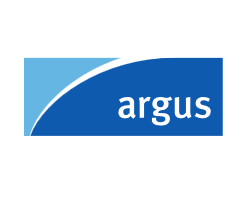U.S., Canadian Coking Coal Exports Eye SE Asia

July 10, 2019 - U.S. and Canadian coking coal exporters are eyeing emerging growth markets in southeast Asia with increasing interest, with some in early-stage discussions with buyers in Vietnam and Malaysia.
Data from the U.S. Census Bureau does not show any coking coal going towards Vietnam or Malaysia historically. Canadian trade data show 497,408t of coking coal heading to Vietnam in January-May — down from 590,748t a year earlier — and none going to Malaysia.
But some U.S. and Canadian coking coal producers are now looking at these markets more closely, drawn in by ambitious steel production growth projections and also seeking opportunities to diversify sales while several traditional export and domestic markets come under pressure.
"We are in talks, it's an area under development," one Canadian coking coal producer said, adding that no sales to Vietnam or Malaysia have been made yet.
Some U.S. producers are also exploring these areas, keen to establish a foothold in new growth markets even if it means selling at a discount.
A similar approach is being adopted by some exporters for U.S. sales into India, which have surged in the past three years. One U.S. producer said it plans to double the share of its sales to India in the near-term to 20pc, adding that it is willing to subsidise freight costs and sell at a discount in order to establish a strong presence in a market that is expected to grow significantly in the next decade.
The Argus cfr India assessment for Australian origin premium hard low-volatile coking coal is at $202.30/t today, while the mid-volatile cfr India index is at $185.90/t. Comparing Argus prices on an fob basis, Australian premium hard low-volatile coking coal is at $188.80/t, while U.S. low-vols were assessed today at $171/t fob Hampton Roads.
The daily high-volatile type A (HVA) index is at $185/t fob Hampton Roads while the high-volatile type B (HVB) index is at $150/t fob.
U.S. low-vol suppliers said they are paying close attention to competition from Canadian coking coal in Asia, with volumes ramping up in the wake of various mine restarts. A Canadian producer noted that buyers have long been familiar with these coals that are re-entering the market, albeit they knew them previously under different brand names, and therefore it is not difficult for them to regain acceptance by the market. Chinese traders and buyers are also showing interest in Canadian coking coal, owing to the uncertainty surrounding potential restrictions on imports of Australian coking coal.
Some onlookers raise questions about whether the more recent Canadian mine restarts will survive the next price slump, whenever that comes, given significant start-up and infrastructure costs. But so far there are no warning signs about the financial stability of these projects.
Russian Competition
Russian coking coal is also expected to remain a competitor for market share in Vietnam, in particular. A trader confirmed several shipments of Russian low-volatile coking coal making the 40 day route from Baltic ports to Vietnam in the past year, in addition to those making the journey from Russia's far east ports. Russian coking coal suppliers are benefiting from low freight rates and a drop in thermal coal exports, which is freeing up some additional space at ports.
The same trader noted it has trialled Mozambican coking coal into Vietnam in the past but issues with moisture levels on the test cargo deterred a repeat.
Russian producer Evraz confirmed earlier this year that Vietnam will be one of its key growth targets going forward, along with Indonesia and Japan.
Russian exporters may also target Vietnam and Malaysia for sales of pulverised coal injection (PCI) as they push forward with ambitious Asia export targets. One market observer estimated that southeast Asia's PCI imports could rise to 7mn t/yr by 2030 from 2mn t/yr in 2018.
A trader this week pegged prices of Russian PCI into Asia in a $110-120/t fob range, depending on specifications and how urgently the seller needs to shift tonnes. Sales are unlikely at the upper end of the price range, he added.

